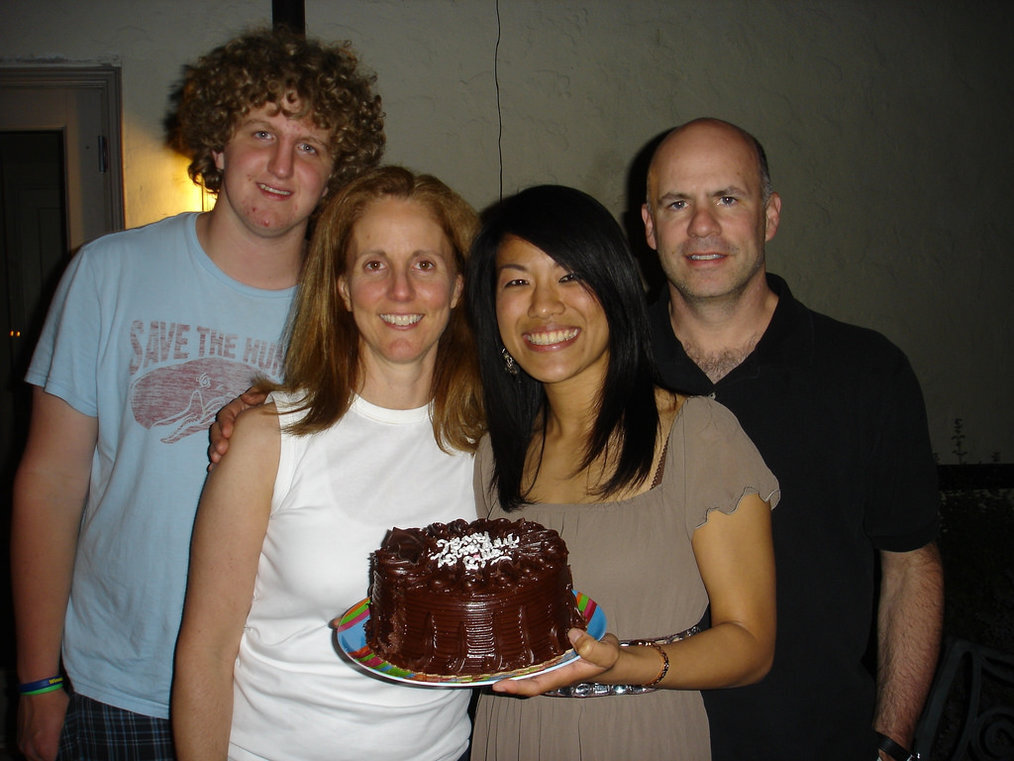The Pros and Cons of a Gap Year Homestay Abroad
Homestays provide an alternative to dormitories or independent apartments. But is this right for you? Read this article to understand both sides of the story!
Taking a gap year is an exhilarating prospect for would-be adventurers, an opportunity to revel in a period of wanderlust and self-growth (the former often fueling the latter). Whether you’re an internationally inclined scholar, a restless dreamer, or an ambitious professional seeking a respite before a meaningful career change, the desire to be transformed by this 12-month hiatus from regular life is universal.
But the logistics of planning a gap year can be overwhelming—where to live and how to live, being of the utmost importance. What’s the best way to discover a foreign country or an unknown city during your gap year? Is it by striking out on your own—a stranger in a strange land, observant and independent? To stay with a local family or live alone? Share a flat with fellow expats or commit to a nomadic existence?
If connecting with locals and authentic cultural immersion are important to you, a gap year homestay might be the perfect solution. Since the journey of a thousand miles (or a 365 day gap year) begins with a single step, we’re here to help you evaluate the benefits and downsides of a gap year homestay.
What is a gap year homestay?

A gap year homestay is when you choose to take this sabbatical year and spend it with a host family in the country you are visiting. The upside of this living arrangement is the ability for visitors to establish a home away from home and enjoy the once-in-a-lifetime opportunity to be fully immersed in a lifestyle and existence alien to your own. As gap years have become increasingly popular in recent years, the question of whether to pursue a homestay abroad or live independently is critical for soon-to-be expats. From cultural immersion to house rules, home-cooked meals to language barriers, read on for your ultimate guide to a gap year homestay abroad.
PRO: You’ll get the chance to live like a local
By signing up for a gap year homestay abroad, you get the opportunity to navigate life in a foreign city—or small town, or rural countryside—like a local. Because, temporarily at least, you are one. And you’ll be navigating like a local too. Even the busiest streets in Kathmandu can feel manageable when you’re accompanied by an expert who grew up in the neighborhood. You’re less likely to get lost and more likely to be found at the ‘secret spots,’ the cafes, restaurants, and concert halls unknown (or overlooked) by other tourists.
CON: You will miss the camaraderie of living amongst fellow expats
There is something incredibly exciting about experiencing an unfamiliar country amongst fellow strangers and outsiders (also known as expats) and watching these relationships grow and develop. Additionally, it's important to acknowledge that, although local wisdom is an amazing asset for a traveler, sometimes the cheesy tourist activities are quite fun.
There's a reason visitors to New York City always want to visit the Statue of Liberty and, as a local, I can't always appreciate why. However, I do recognize the mandatory visit to the Eiffel Tower when I am a tourist. It's intoxicating to be in a new place surrounded by people experiencing the same sensations that you are. You may begin your acquaintance as peers, but you'll likely finish the year as confidants.
PRO: You’ll enjoy the comfort a home away from home
The first few weeks living in a new country can always be a bit lonely and quite challenging at times—which makes the domestic comforts of a homestay all the more appealing. Not only do you already have a built-in family, but a fully furnished bedroom. You needn't hassle with foreign landlords about the water pressure or the WiFi. All these minor elements of seamless daily life (including access to a full kitchen and adapters to accommodate your hairdryer) come ready-made, alongside a surrogate family unit to show you the ropes in this brave new world.
CON: As with any family, you will be subject to certain household rules
There will be less flexibility in your day-to-day or (more aptly) your night-to-night activities, as you will be expected to check in regularly with your hosts. The term "my house, my rules" is equally applicable abroad as it is in your parent's house. All happy families are alike, Tolstoy famously noted, and, as you are an outsider, you will be expected to adapt to their customs, like breakfast or chores, or how they divvy up sharing the remote. The upside of this? Intensive cultural immersion. And the chance to make lifelong friends (or enemies).
PRO: You will expand your palate with home-cooked meals
Unless your host family keeps the same nocturnal hours as you do (a likelihood, for example, in Barcelona), would-be pub-crawlers may need to reign in their nightly agenda. (Especially if it creeps into the not-so-early morning hours and disrupts a sleeping household). But, while a homestay may curtail your late-night dinners out, there is one major upside: Home-cooked meals and cozy dinners in—a wonderful way to sample the local flavor, and best of all, unlike those $18-euro cocktails, gratuity is included, and the spread is free of charge.
PRO: You will save money
Our next point should come as no surprise, particularly when mentally calculating the differential in a night out on the town and dinner prepared in the sanctuary of your adopted home. Still, you are likely to save money by opting for a homestay. Certain communal aspects of living are either divided up between a greater number of people or—more often than not—covered by your hosts, who aren't inclined to charge rent to their guests. Plus, the convenience of a stocked kitchen, a washer/dryer, and an accessible vehicle (be that bicycle, convertible, moped, or scooter) are worth even more than money can buy when you're in the process of adapting to a new country and an entirely new way of life.
CON: You may crave your independence, and a bit of alone time
As we mentioned before, as a houseguest, the onus is on you to adjust and adapt. Extroverts may take to this challenge of abrupt intimacy amongst strangers more easily, while introverts may suffer from loss of privacy or insufficient alone time. It's natural to feel isolated—especially if there is a language barrier, and this inability to clearly express yourself is lonely more than anything else. Try to remember initial feelings of discomfort often pass. After all, you're a stranger in a strange land, and now a strange house too. It's natural to feel uneasy at first.
PRO: You will almost certainly improve your language skills.
If there is indeed a language barrier in the home, rest assured that you will be inching towards fluency in no time. If you think binge-watching four seasons of “Call My Agent!” on Netflix was enough for you to master the French language, you'll be astounded by the strides that can be made when you're living in someone else's home and there's no other way to communicate.
The learning curve is steep—literally. Picture a beginner skier (your high school Spanish) being dropped by a helicopter off-piste in Zermatt (your frustration with fast-talking strangers using slang you don't know and phrases you can't begin to understand). But, slowly and then suddenly, your skills will improve. You'll start to feel less self-conscious and more confident in your abilities. (A glass or two of wine also helps with the latter).
CON: You may feel more limited when planning extra-curricular travel
On a traditional gap year abroad, wanderlust is generally encouraged, and you don't have to check your daily, weekly, or monthly plans with anyone aside from the passport patrol at customs. But for homestay guests, there is an expectation you won't be jetting off for Malta or Dublin or Paris every moment you're not working or sleeping. (This is admittedly difficult to resist when flights to Sardinia are 50-pence on Ryan Air—never mind that passengers applaud with genuine appreciation and relief when the pilot lands the aircraft safely, each time a surprise). But the terms of the arrangement are quite literally spelled out in its name: Home, stay. If you fear this existence is not as peripatetic as you'd like, plan an extended holiday to coincide with the end of your homestay—and potentially booking a mini-adventure in the days or weeks leading up to your arrival.
PRO: You will learn to travel deeper, not farther
You don't really need weekend escapes if you're already in a foreign country, however. By exploring your adopted home more slowly and more deliberately, you will gain a greater understanding not only of your surroundings but of yourself -- of who you are when you're stripped away from the everyday things that define you at home. And this groundedness juxtaposed with the unreality of your 12-month gap year existence offers the opportunity for deep self-reflection and cultural immersion. You will experience life beyond yourself, beyond your usual limitations. And isn't that ultimately the entire point of a gap year, after all?

Key questions to ask before you choose a gap year homestay
- Do I want to live with other travelers like me?
- Is learning the language and customs of my new home important to me?
- Am I comfortable living in someone else’s home?
- Would I enjoy having a host to turn to for advice and help me around the area?
- Will I follow potential rules set by my host family and respect their rules during my stay?
Everyone has different needs and expectations to reflect upon when traveling or moving abroad. Remember, the decision to stay in a homestay depends on the type of experience you hope to have in your new home. Happy house hunting!
